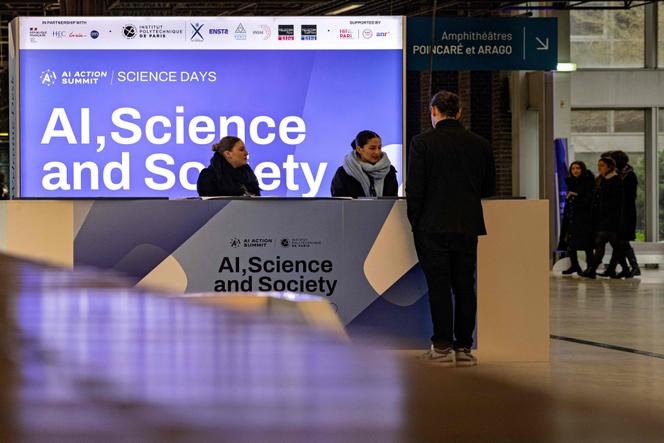


Right up to the last minute, authors' rights have been a source of tension in the preparations for the Artificial Intelligence (AI) summit in Paris, which opens on Monday, February 10. Less than four days before French President Emmanuel Macron's welcomes some 100 heads of state, representatives from cultural industries were invited to an emergency meeting at the Elysée on Thursday morning. Three days earlier, they had been "very upset" by a press briefing, according to Pascal Rogard, of the Society of Dramatic Authors and Composers (SACD).
Advisers at the Elysée ruled out the proposed "charter" for respecting culture that rights holders had hoped to have endorsed by the summit's organizers. One of them even made a "huge mistake" by implying that authors' rights was a "particularly French issue" but "not necessarily a global one." That was all it took to reignite the concerns of those in the creative industries about being sidelined.
"At the meeting, the advisers told us that the president supports authors' rights. We are therefore expecting a strong statement to ensure that France stands by this principle, which it invented," said Rogard. He never missed a chance to point out that in 1791, Pierre-Augustin Caron de Beaumarchais created authors' rights – which are slightly different from copyright in that it has a moral component, the SACD explains on its website – remuneration proportional to proceeds, and the Society of Dramatic Authors, now the SACD, where a bust of the French playwright sits in the main meeting room.
You have 81.77% of this article left to read. The rest is for subscribers only.
